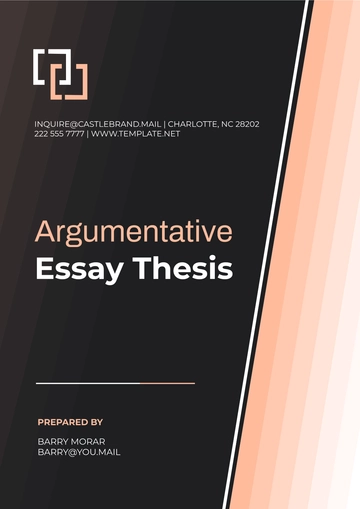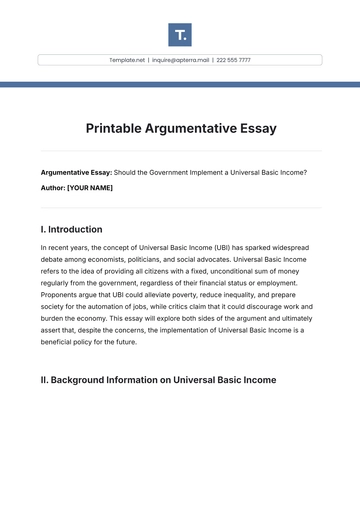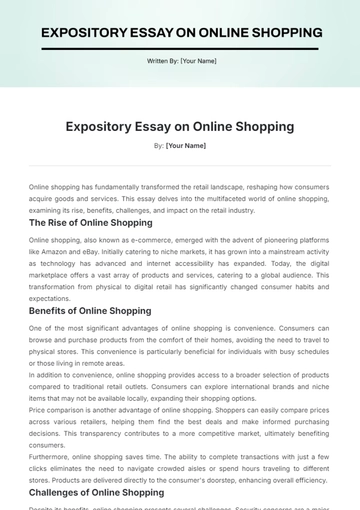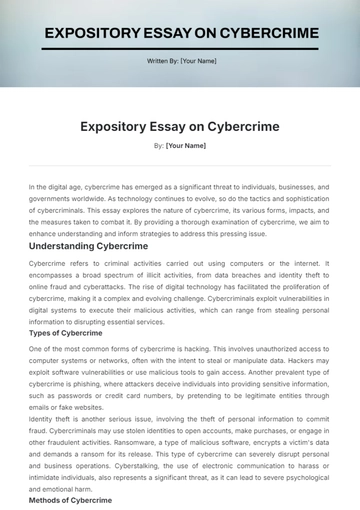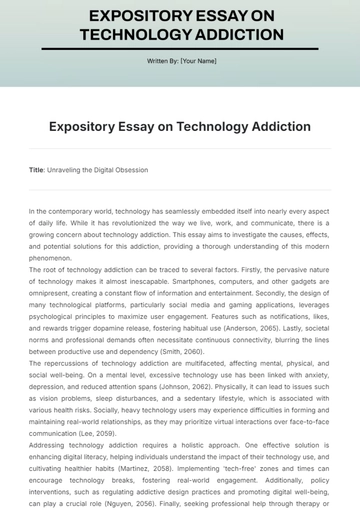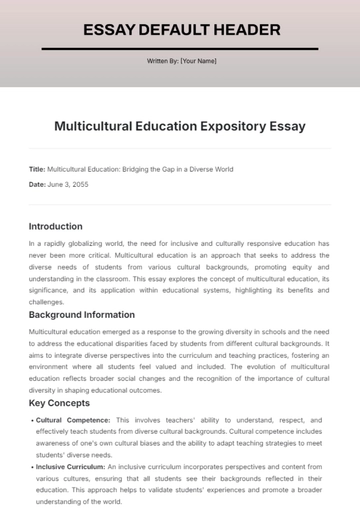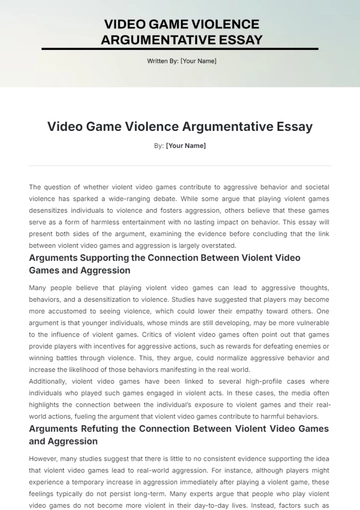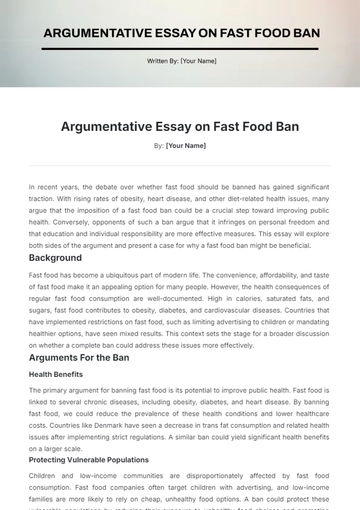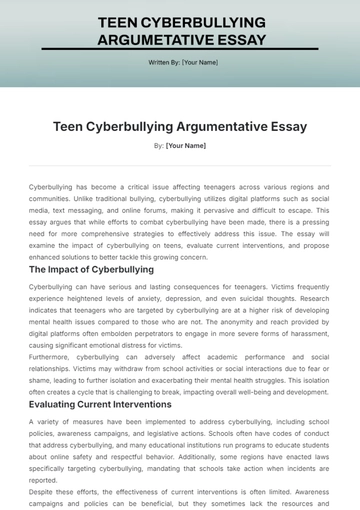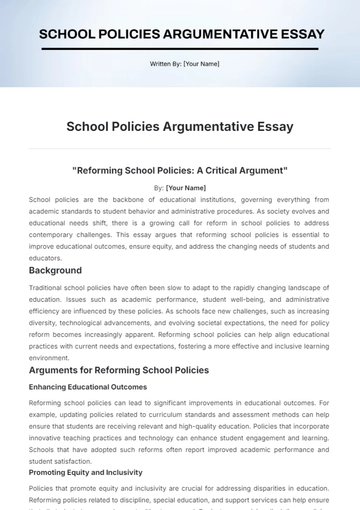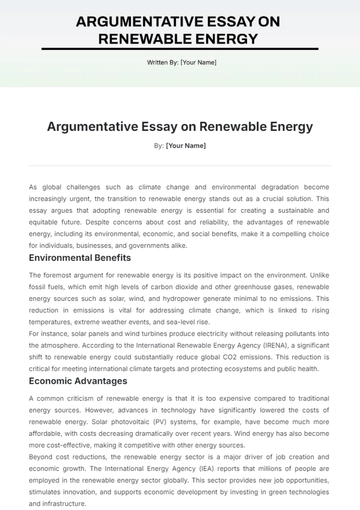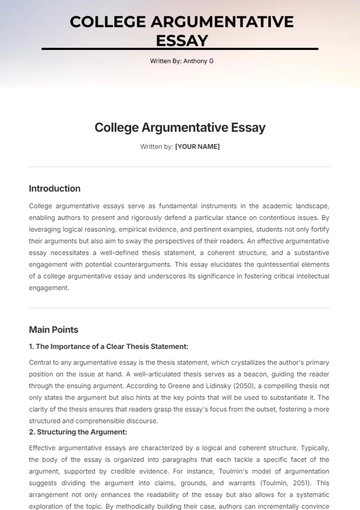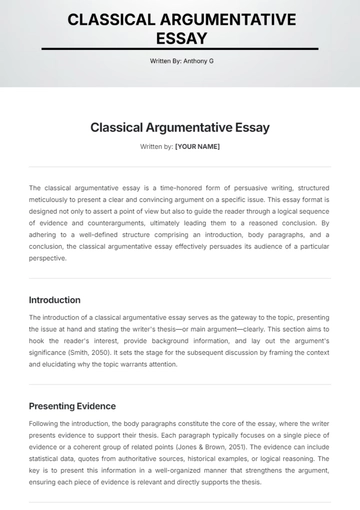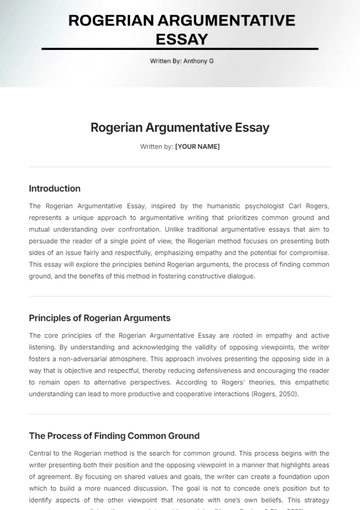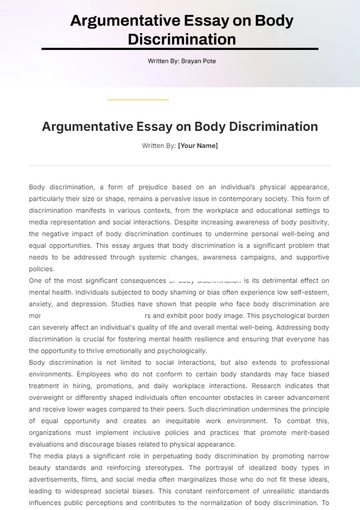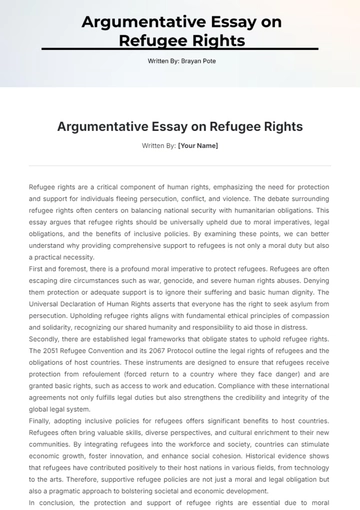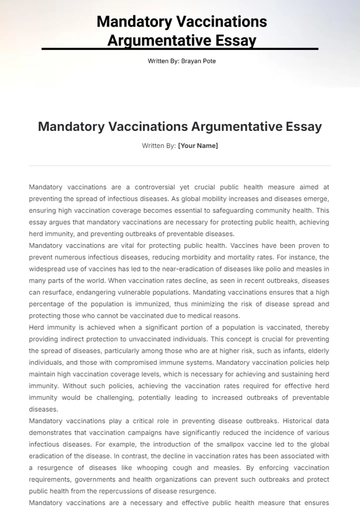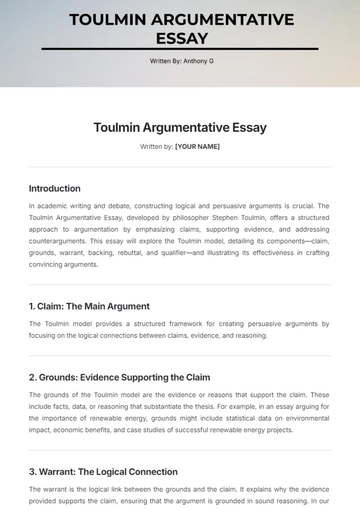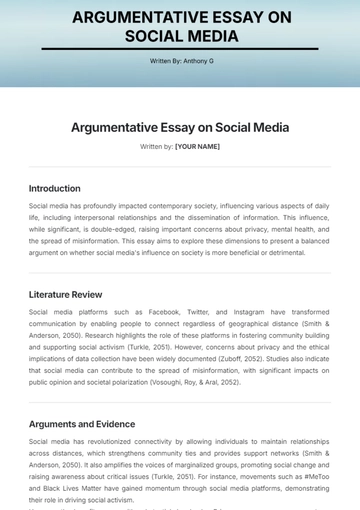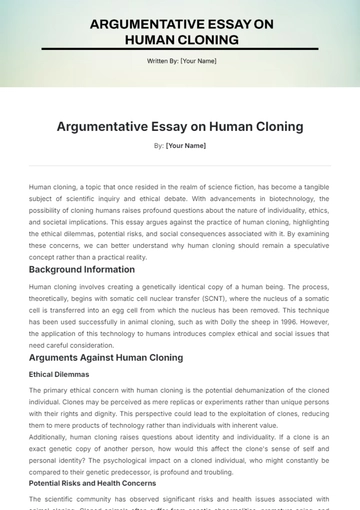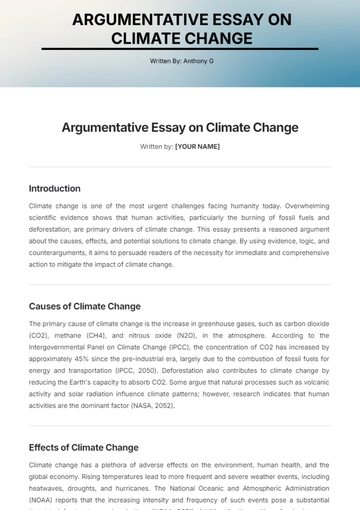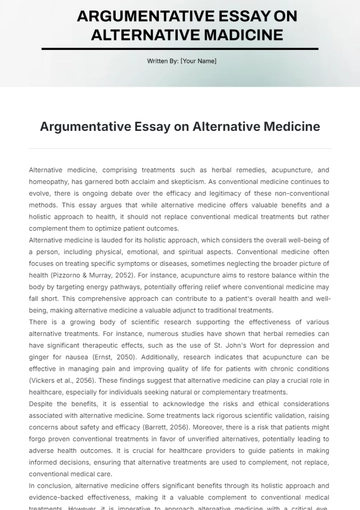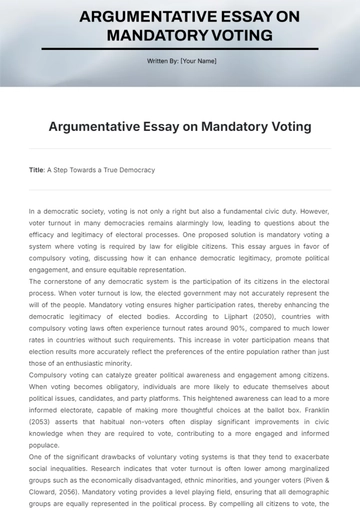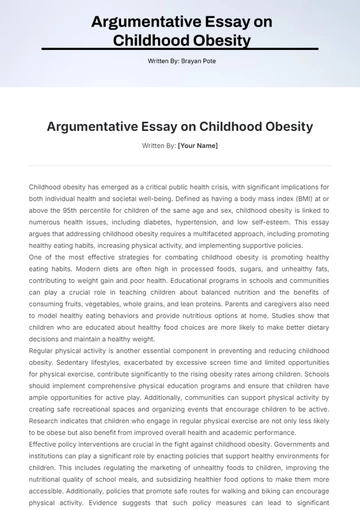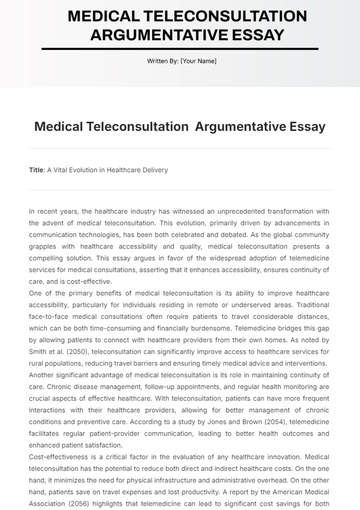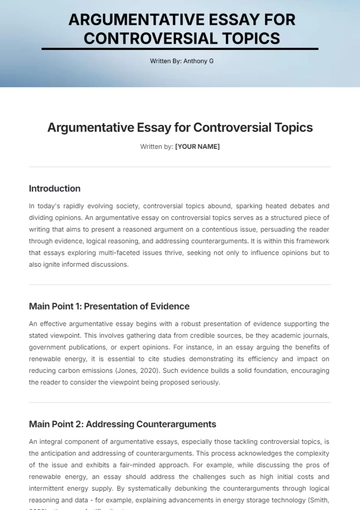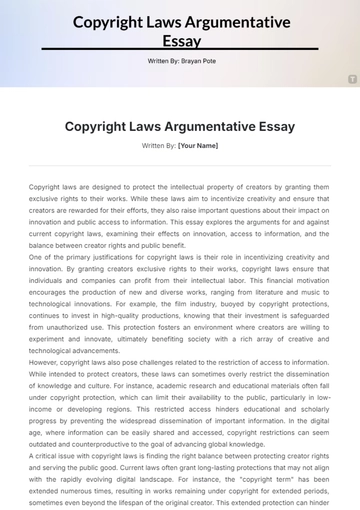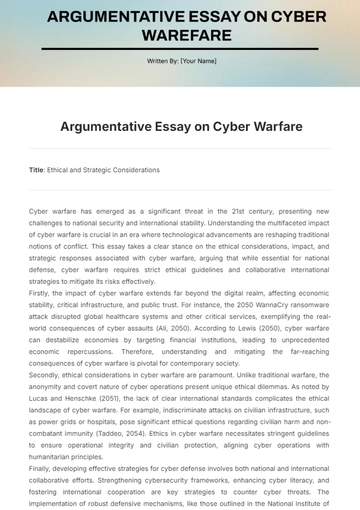Free Plastic Ban Argumentative Essay
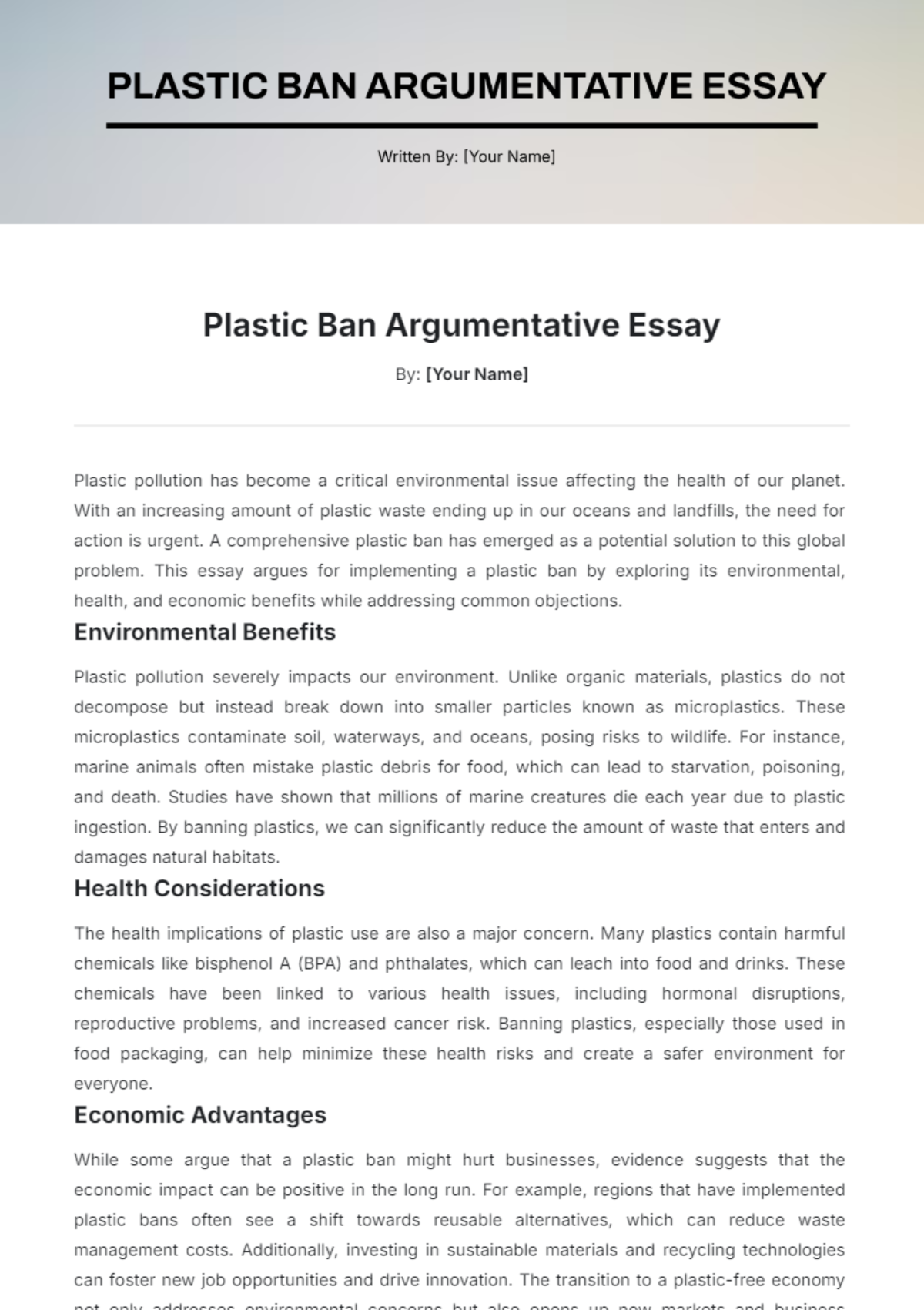
By: [Your Name]
Plastic pollution has become a critical environmental issue affecting the health of our planet. With an increasing amount of plastic waste ending up in our oceans and landfills, the need for action is urgent. A comprehensive plastic ban has emerged as a potential solution to this global problem. This essay argues for implementing a plastic ban by exploring its environmental, health, and economic benefits while addressing common objections.
Environmental Benefits
Plastic pollution severely impacts our environment. Unlike organic materials, plastics do not decompose but instead break down into smaller particles known as microplastics. These microplastics contaminate soil, waterways, and oceans, posing risks to wildlife. For instance, marine animals often mistake plastic debris for food, which can lead to starvation, poisoning, and death. Studies have shown that millions of marine creatures die each year due to plastic ingestion. By banning plastics, we can significantly reduce the amount of waste that enters and damages natural habitats.
Health Considerations
The health implications of plastic use are also a major concern. Many plastics contain harmful chemicals like bisphenol A (BPA) and phthalates, which can leach into food and drinks. These chemicals have been linked to various health issues, including hormonal disruptions, reproductive problems, and increased cancer risk. Banning plastics, especially those used in food packaging, can help minimize these health risks and create a safer environment for everyone.
Economic Advantages
While some argue that a plastic ban might hurt businesses, evidence suggests that the economic impact can be positive in the long run. For example, regions that have implemented plastic bans often see a shift towards reusable alternatives, which can reduce waste management costs. Additionally, investing in sustainable materials and recycling technologies can foster new job opportunities and drive innovation. The transition to a plastic-free economy not only addresses environmental concerns but also opens up new markets and business opportunities.
Addressing Counterarguments
Economic Impact on Businesses
A common objection to plastic bans is the potential economic burden on businesses, particularly those that rely heavily on plastic packaging. Critics argue that alternative materials can be more expensive, which may lead to higher costs for consumers. However, research indicates that the benefits of reducing plastic waste and promoting sustainable practices can outweigh these costs. Many businesses that have adapted to eco-friendly practices find that they can attract environmentally conscious consumers and reduce long-term expenses related to waste management.
Effectiveness and Enforcement
Another concern is the effectiveness and enforcement of plastic bans. Critics argue that banning plastics alone may not solve the problem if enforcement is weak and alternative solutions are not properly implemented. While enforcement challenges exist, they can be addressed through comprehensive policies and public awareness campaigns. Successful examples include countries like Rwanda and Kenya, which have enacted strict plastic bans and achieved notable reductions in plastic waste. Effective enforcement, combined with public education and support for alternative solutions, can ensure the success of plastic bans.
Conclusion
A comprehensive plastic ban presents a strong case for addressing the pressing issue of plastic pollution. The environmental, health, and economic benefits of such a ban make it a viable solution to reduce plastic waste and its harmful impacts. Although challenges such as economic concerns and enforcement need to be managed, they can be effectively addressed through thoughtful planning and public engagement. Implementing a plastic ban is a crucial step toward protecting our planet and ensuring a sustainable future for generations to come.
- 100% Customizable, free editor
- Access 1 Million+ Templates, photo’s & graphics
- Download or share as a template
- Click and replace photos, graphics, text, backgrounds
- Resize, crop, AI write & more
- Access advanced editor
The Plastic Ban Argumentative Essay Template from Template.net is designed to help you create a compelling, well-structured argument on environmental issues. Fully editable and customizable, this template allows you to adjust content to fit your perspective and style. Perfect for students and professionals, it provides a clear framework to present persuasive arguments, saving time while ensuring a polished, professional presentation tailored to your needs.
